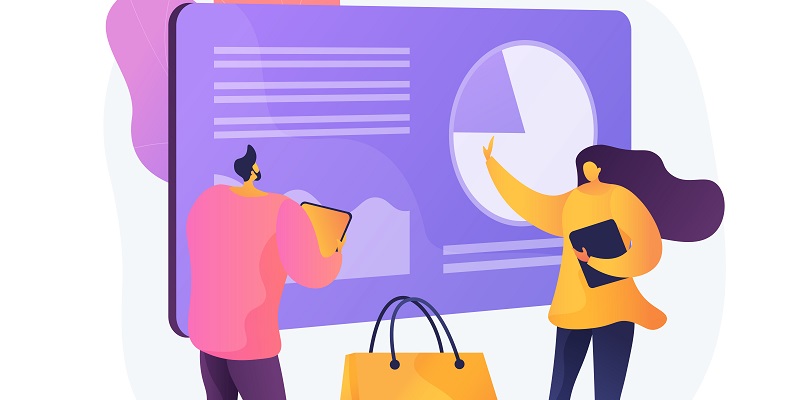As the COVID-19 pandemic swept across the globe, it disrupted business operations on an unprecedented scale. Among the sectors hit hardest was B2B sales, which were forced to make the switch to online transactions amid widespread lockdowns. This shift led to many of the traditional face-to-face sales methods becoming redundant. As a result, companies had to resort to a more digital-first approach to their sales process. This change in approach has been expedited by the importance and expectations customers place on the buying experience.
While this shift toward digital transactions opened up new opportunities and markets, it also highlighted a problem with traditional B2B sales: it was ill-equipped to handle this new digital environment. The pandemic accelerated the shift toward digital B2B transactions, and with that came the expectation that business interactions would have a similar level of ease, transparency, and personalization that B2C customers experience with e-commerce platforms like Amazon and Alibaba.
There is an expectation for B2B interactions to match the B2C experience
Buyers in B2B transactions expect a higher level of personalization, efficiency, and convenience than ever before. They want a seamless shopping experience that is tailored to their unique preferences and needs, and they are willing to switch suppliers if they don’t find what they’re looking for.
The problem with excessive technology in B2B sales
Unfortunately, up to now, in order to incorporate elements typically associated with consumer sales, B2B salespeople have resorted to excessive technology without considering each buyer’s unique journey. Installing a myriad of technology tools and data analysis to try to bridge the gap from B2B to B2C sales has created a distance between salespeople and customers. The overall process has become more complicated and overwhelming for both parties.
Importance of understanding each buyer’s unique journey
To make the necessary changes to align the B2B sales process with the requirements of modern buyers, salespeople need to take a radical approach to personalization. Understanding each buyer’s unique journey through the sales funnel can help bring a more human touch that closely mimics what B2C sales offer customers.
The Role of Buyer Research in Virtual Sales
Many salespeople still study buyers’ LinkedIn profiles, browse company websites, and watch relevant interviews and videos so that they are fully prepared when they meet the buyers virtually. But the spread of virtual interactions is changing the way businesses sell. With most purchases occurring online, sales reps need to provide targeted information and content to their customers. The buyer’s journey has become a data-driven interaction that informs the salesperson of their customer’s needs and preferences.
Buyer enablement platforms and analytics dashboards
The use of technology can’t be overlooked, however. Buyer enablement platforms already allow access to many more buyer engagement statistics via an analytics dashboard. It’s essential to focus on how technology can empower salespeople to have better conversations with their prospects. An analytics dashboard helps salespeople to see who is engaging with which products and content, as well as the timing and duration of interactions.
The Issue of Scattered Collateral in B2B Sales
The lengthy process of searching for the right content and collateral for their prospects is often due to collateral being scattered across a variety of platforms instead of being accessible through a centralized hub. The result is that sales reps waste a lot of time searching for information, preventing them from making more sales.
Search capabilities and personalized content in buyer enablement platforms
Buyer enablement platforms have advanced search capabilities that enable sales reps to quickly find, replicate, and tailor specific content for each new prospect, based on their industry, use case, and persona. They can then share this content through a digital sales room. These platforms are designed to act as digital showrooms for all collateral, making it easier to keep all the buyer-focused content together in one place. Sales reps can quickly find the right collateral and accurately relay information that will drive business outcomes, such as customer acquisition, retention, or upsell.
The goal of the consumerization of B2B sales
The consumerization of B2B sales aims to create a more intuitive, efficient, and customer-focused sales journey. It is about bringing the best consumer practices to B2B sales. By combining technology and data, sales reps can take customer interactions to the next level with personalized content and experiences. Ultimately, improved B2B sales mean more satisfied customers who are more likely to become repeat buyers in the future.
Companies need to recognize the critical role of personalization in B2B sales. The consumerization trend has propelled the importance of offering customized experiences to the forefront of the sales process. Smart companies know their customers’ preferences and buying behaviors and are consciously moving away from the overly technology-centered approach that was prevalent in traditional B2B sales. By aligning the sales process to be more personalized and human-centered through targeted content and accessible specific collateral, businesses can become more customer-focused and enable salespeople to build strong relationships with their customers.

